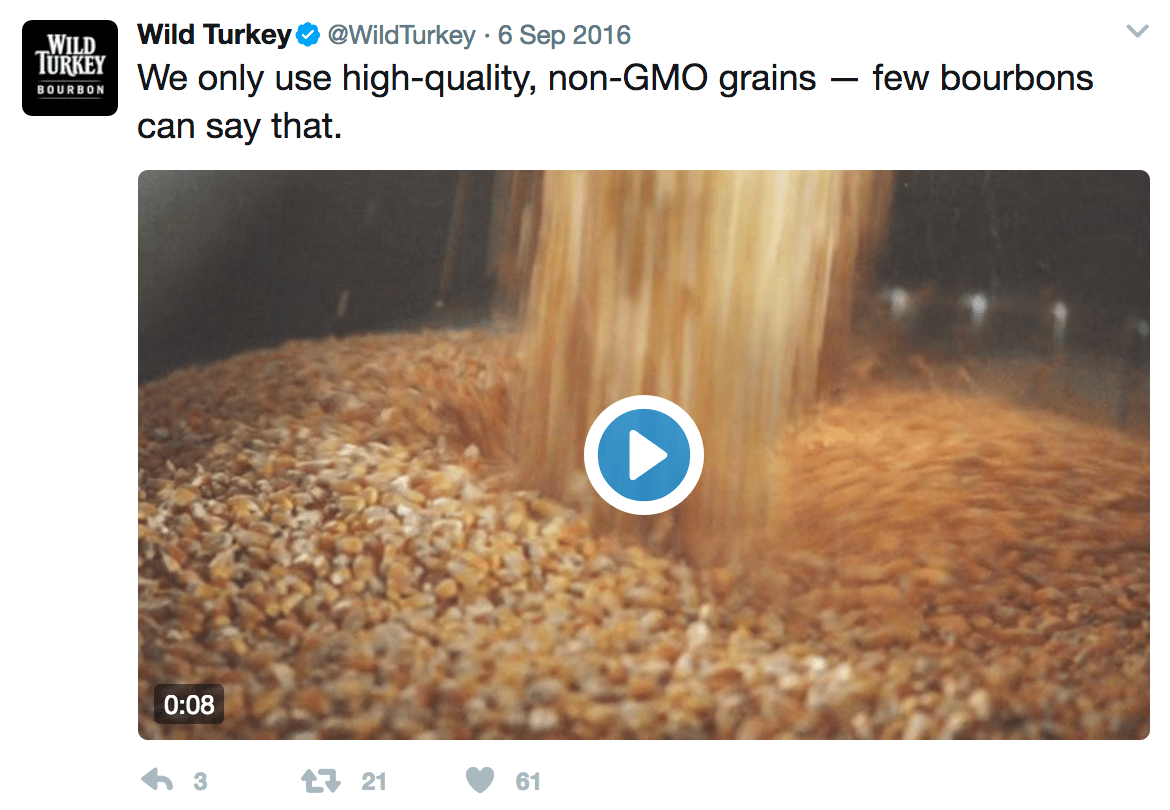[Editor’s note: Kevin Folta is a molecular biologist and chair of the horticultural sciences department at the University of Florida.]
[April 2, 2017] I saw a graphic on Twitter from the whiskey maker Wild Turkey. They were boldly claiming that their product was “Non-GMO”. Not a little asterisk, but a big meaty font. Here is a company boldly stating that they consciously select non-genetically engineered ingredients, namely corn, one of the central grains in its alcoholic beverages. Instead of GE corn, they select conventional corn that costs farmers more money to grow, impacts topsoil harder, and uses more insecticides.

The double crazy irony is that many in the anti-GMO movement will claim they fear GE crops because the products might contain trace amounts of the herbicide glyphosate (parts per billion; e.g. seconds in 32 years). No reliable test has actually shown this. Then they center on glyphosate’s controversial listing by the IARC a “Group 2A Probable Carcinogen” despite thin data to support that assignment. Since this announcement, some critical of genetic engineering are frozen in fear of this herbicide that isn’t consumed in any great quantity, and even if it was, could maybe possibly remotely be problematic.
But the same agency rates ethyl alcohol as a Group 1 Known Carcinogen, along with benzene and formaldehyde.
The GLP aggregated and excerpted this blog/article to reflect the diversity of news, opinion, and analysis. Read full, original post: Risky Whiskey or Science Under the Influence?
For more background on the Genetic Literacy Project, read GLP on Wikipedia































